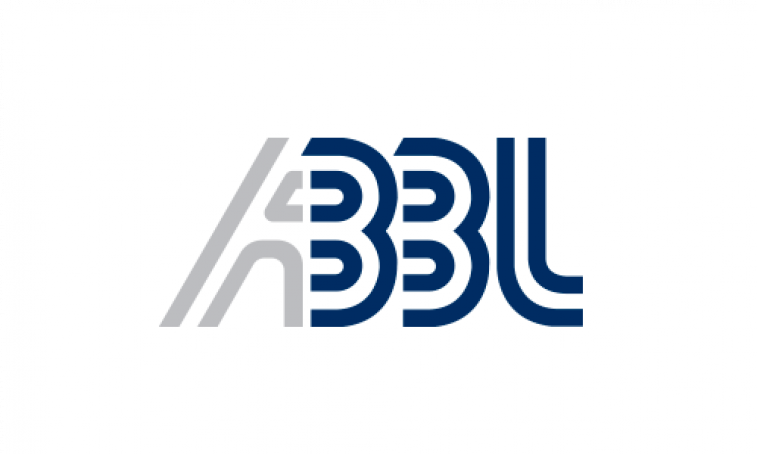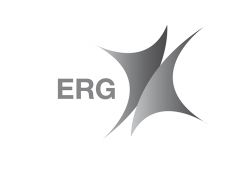Generative AI: an opportunity rather than a threat
With questions mounting about the challenges and opportunities of generative artificial intelligence (AI) with such an example as ChatGPT, the FinTech and Innovation Forum of the Luxembourg Bankers’ Association (ABBL) is shedding more light on the stance of banking professionals on the adoption of this technology thanks to a recent survey conducted with its members. Overall, 42 respondents representing credit institutions, FinTech firms, consulting companies, payment institutions, electronic money institutions, support PFSs, law firms, and software vendors took part in the survey conducted with the support of Societe Generale Luxembourg's innovation team. 76% of respondents are optimistic about the benefits and opportunities offered by ChatGPT, and most are allowed by their institution to use it respecting data protection guidelines.
A new era for business
"The release of ChatGPT marked the beginning of a new era for business",says Laurent Marochini, Chair of ABBL's FinTech and Innovation Forum and Head of Innovation at Societe Generale Securities Services Luxembourg. "Language model implementation is already passed the point of no return. It will impact the functioning of society through its implementation in business processes. Although changes will not be as revolutionary for all, some will be affected, and the first movers will be rewarded with lower costs, increased speed, and greater accuracy."
Thus, the impact of AI implementation in businesses will soon reduce the need for basic intellectual task performing labor. This will leave more time to focus on creative and complex tasks. "Chat GPT and the like will have a positive impact on efficiency and could be part of the answer to growing pressure on banks' profitability" Ananda Kautz, Head of Innovation, Digital Banking & Payments at the ABBL confirms.
It is key to keep in mind that the potential of generative AI is of course not limited to basic tasks. “Respondents of the survey highlight opportunities offered to improve customer services. Examples could include more personalized banking experiences thanks to enhanced customer analytics, investment advice based on larger and new sources of data or customer service chatbots available 24/7”, says Ananda Kautz. “Finally, ChatGPT can support financial institutions in detecting fraud by analysing transactional data in real-time, and provide support to the Tech team. In a context of scarce Compliance and IT resources, ChatGPT could be part of the solution”.
Inaccuracies, data privacy and delegating the core business seen as current limitations
There are downsides related to some forms of generative AI. Among the most threatening is inaccuracy (or "hallucination"). "Language models can sometimes completely invent the answer to a question phrased by the user" warns Ananda Kautz. This phenomenon can be difficult to identify due to the persuasive arguments used. The only way to counter it is to systematically check the sources on which the models base their argumentation. It implies that one cannot completely rely on this technology for learning purposes.
Another concerning issue for companies is data privacy. Every input sent into a language model goes through the servers of its creator: Open AI in the case of ChatGPT. This means the model cannot be used to process confidential data, especially ones protected by GDPR.
A common fear among businesses is to lose their proximity with the core of their work by delegating it to a machine. Nowadays still, apprentices learn by mastering basic intellectual tasks before moving to more complex and creative activities. According to Laurent Marochini: "We must ask ourselves how to train or sustain the quality of tomorrow’s experts ".
However, due to efficiency gains these AI tools could bring, commercial entities are inherently incentivised to continue developing and implementing solutions by making them compliant to existing regulatory frameworks and standards. The survey also shows that 51% of respondents are currently allowed to use ChatGPT, respecting personal and professional data security guidelines, while only 28% of senior managers appear to be very familiar with ChatGPT.
“Familiarity of senior management with ChatGPT is an important factor in the technology adoption”, states Laurent Marochini. The study unveils that only 7% of senior managers of financial institutions are very familiar with ChatGPT, 53% - somewhat familiar, and 40% not at all. This entails that more education and dedicated training should be conducted internally. “It is key to educate both employees and executives on opportunities and risks related to ChatGPT”, concludes Ananda Kautz. According to the study, less than half of bank respondents (47%) stated that their institutions considered risks and opportunities of using ChatGPT, whereas for all respondents it equals to 78%. “This entails that for a large part of banks it is yet to complete the learning journey for the technology and translate this into internal assessment and a specific framework afterwards”, adds Ananda Kautz.
Optimism in the banking community
“The results show that 76% of respondents consider tools such as ChatGPT an opportunity for their organisations” reveals Ananda Kautz.
The survey shows that majority of respondents has planned to implement ChatGPT or other AI-powered chatbots for specific use cases (57%). This figure becomes more striking for credit institutions – 88%. “This is an indication of a strong credit of trust given by banks towards the Generative AI technology, and we expect that the adoption journey is likely to accelerate in the coming years”, points out Andrey Martovoy, Innovation & Digital Adviser at the ABBL.
Usage limitations may reduce the pace and scope of adoption
Current policy towards the usage of ChatGPT is the following: for 51% of respondents, the tool is free to be used by all staff members, 24% - partial use by certain categories of staff members, 25% - blocked for all staff members. For banks, the situation with the usage of ChatGPT is characterised obviously with a higher level of restrictions: 41% free to use, 19% partial use, and 38% blocked.
“We observe that the adoption of the generative AI technology in the banking sector is held in a more regulated context. This could be reflected in a relatively higher level of internal restrictions and hence could lead to the limited scope and pace of adoption”, states Laurent Marochini. In this regard, more clarity from data protection and financial services authorities would be useful on the usage of generative AI in the banking sector. This will be an important signal to credit institutions to proceed with more enhanced experimentation with the technology.
From the obstacle point of view, the study reveals that a significant part of banks (44%) are not equipped with necessary data and infrastructure in place to effectively implement ChatGPT or other AI-powered chatbots. Only 6% of surveyed credit institutions have all needed resources in place. “This rate is rather low, however the situation creates good groundings for justifications for accelerating in-house innovation and development by banks and also for embarking on cooperation projects with AI-driven FinTech firms. The latter approach could be even more suitable to speed-up innovation initiates and shorten time-to-market for generative AI use-cases in banking”, outlines Andrey Martovoy.
A regulatory perspective
“In the European Union, AI has been attracting attention of policy makers from a regulatory point of view”, points out Andrey Martovoy. In 2021, the European Commission presented a reviewed Coordinated Plan on AI and a Proposal for a Regulation laying down harmonised rules on artificial intelligence (AI Act). The AI Act sets a framework for the trustworthy usage of specific AI use-cases in many sectors including financial services. In parallel with the uptake of generative AI, EU policy makers are currently discussing updates into the AI Act proposal to regulate the usage of generative AI tools such as ChatGPT.
In Luxembourg, CSSF published a White Paper “Artificial Intelligence: Opportunities, risks and recommendations for the financial sector” and more recently released a joint thematic review with the Central Bank of Luxembourg on the use of Artificial Intelligence in the Luxembourg Financial sector.
All these regulatory and policy measured are called to enable lawful, ethical, and robust usage of AI, and the ABBL is very supportive in this regard.
Communiqués liés
RSA launches technology and management liability insurance s...
RSA Luxembourg, part of Intact Insurance Specialty Solutions, today announces th...
Lancement d'une nouvelle connexion intermodale entre Bettemb...
CFL multimodal a le plaisir d'annoncer le lancement de sa nouvelle connexion i...
Experts from LUNEX award first micro-credentials in Rwanda o...
The Rwanda Ministry of Education (MINEDUC) formally inaugurated Syllabi, a publi...
ERG Notes that ENRC Secures Landmark Victory as Court of App...
Eurasian Resources Group (ERG), a leading diversified natural resources group he...
LetzToken et La Vie est Belle annoncent leur partenariat ouv...
«?LetzToken?», plateforme de tokenisation pionnière basée à Luxembourg, et ...
ERG announces a Pre-Export Finance Facility Agreement based ...
Eurasian Resources Group (“ERG”, “The Group”), a leading diversified nat...
Il n'y a aucun résultat pour votre recherche







